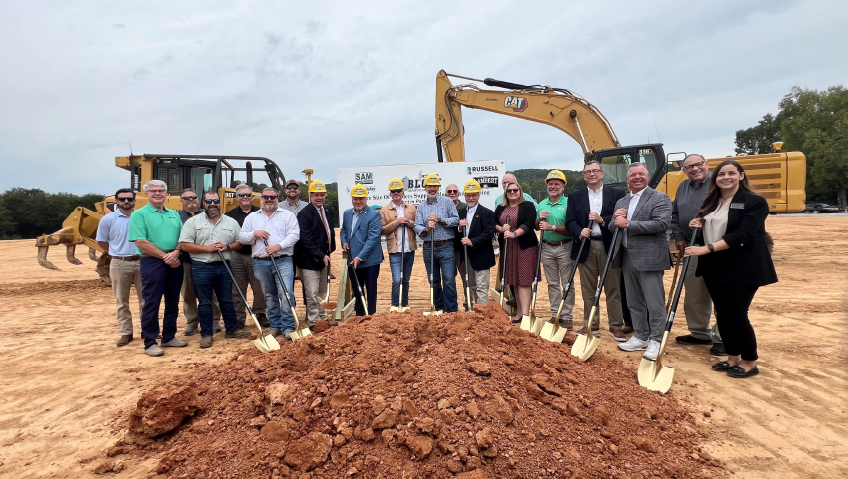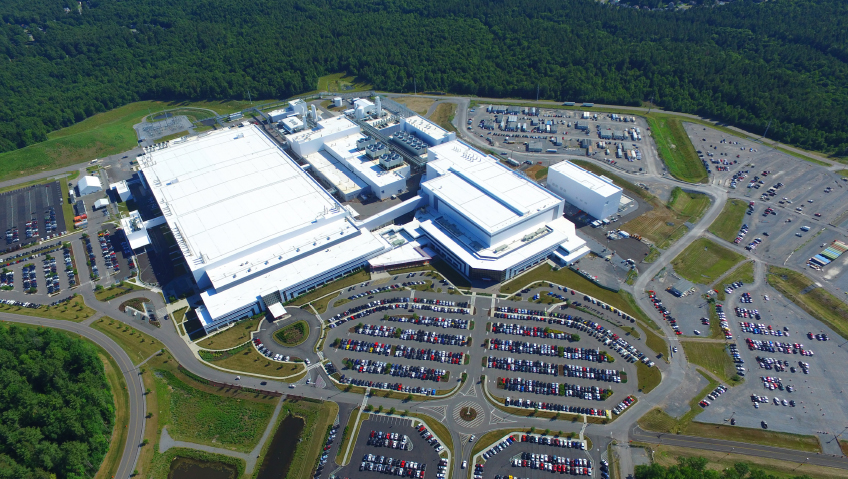DeKalb County is growing fast. Nestled in the hills and valleys of northeast Alabama, the rural community offers industries a wealth of opportunities, while residents enjoy the advantages of small-town living with the convenience of being just a short drive from several bigger cities.
“Being in close proximity to Chattanooga, Huntsville, Atlanta, and Birmingham, it’s been a good place for people to bring their families to live,” says DeKalb County Economic Development Authority (DCEDA) Executive Director Jimmy Durham. Durham will be retiring at the end of this year, and the organization’s new Executive Director, Dr. Brett Johnson, started on November 15.
In addition to having an airport, I-59 bisects the county, and 42 miles of Norfolk Southern’s class 1 railroad runs through it as well, making it convenient to whisk goods in and out of the region or to travel to nearby cities. “We’ve been sitting in a good place for recruiting industry, and we have recruited quite a bit,” Durham says. “We have a good influx of workers coming in from outside the county.”
This growth increased during the pandemic when people sought refuge from more populated locations. “People can live in a rural area, in a less congested area, and they have all the amenities of the big cities. They can drive an hour and be in Chattanooga or Huntsville and then about two hours to get to Atlanta or an hour and 20 minutes to Birmingham. Within an hour or so, people can go to plays or concerts or wherever they want to go in these bigger metropolitan areas.”
At the same time, DeKalb County is far enough away from these metropolitan areas to offer an escape into nature. “It’s got a lot of scenic beauty,” Durham says of the area. “A lot of people from Atlanta bought or built cabins out here on the mountain and stayed here after the pandemic was over and just worked out of their cabin.”
Local leaders had already taken the steps needed to make this remote work possible. “We were one of the first counties to become a gig county,” Durham says. “We have a company—Farmers Telephone Co-op—that started implementing fiber cable 15 years ago… That was a big element for drawing people in, with [them] being able to have that Internet service.”
The county’s education system has also enticed people to stay long-term. “We have a great school system here,” says Durham.
DeKalb County was once known as the ‘Hosiery Capital of the World,’ with 125 hosiery operations before the industry packed its bags and left, leaving just one hosiery manufacturer today. “In about 2010, they started moving away or being bought out by foreign companies who then moved the equipment overseas,” Durham explains. “We lost approximately 7,000 jobs, but it didn’t hurt us nearly as badly as it could have.”
The county bounced back by making a concerted effort to diversify its economy. It was not long before new businesses were pouring in to take advantage of all the area has to offer. “Within two years, we had totally recovered. With companies moving in and having existing buildings available for industry, we were able to continue to grow.”
Today, the county is home to a wealth of industries, from Tier 1 automotive suppliers to the largest egg hatchery in the United States. Large employers include The Children’s Place E-commerce and distribution center, Koch Foods poultry processing, garbage truck manufacturer Heil Environmental, hosiery manufacturer Renfro Corporation, playground equipment manufacturer PlayCore, automotive parts manufacturers Moriroku Technology North America and Plasman Corp, and steel joist fabricator Vulcraft Inc.
Tourism is another major industry in DeKalb County. “It continues to grow and grow and grow,” Durham says of the sector. With multiple parks to visit, the great outdoors is a big draw. Buck’s Pocket State Park offers 2,000 acres of hiking trails and camping facilities on Sand Mountain, and DeKalb County State Lake, located on Sylvania Lake, is an angler’s paradise, with opportunities to catch bass, bluegill, redear sunfish, catfish, and crappie.
In addition, “We’re located between two really great fishing lakes, Guntersville Lake, which is west of us by about 28 miles, and then east of us about the same distance is Weiss Lake,” says Durham. “A lot of tournaments take place at both lakes.”
Meanwhile, 3,502-acre DeSoto State Park features waterfalls, scenic views, and hiking trails. Visitors can stay in the park’s chalets, cabins, resort lodge, or campgrounds. High Falls Park boasts a stunning, 35-foot waterfall and natural stone bridge, while horseback riding, skiing, and golfing activities are all available in DeKalb County.
Little River Canyon National Preserve protects 16,000 acres of southern Appalachia wilderness. “It’s one of the deepest canyons in the United States,” Durham says, “and Jacksonville State has built a facility for training students out there in ecology and environmental areas.” More opportunities may be coming soon. “We’re in the process of trying to get a hotel out there where they can have conferences at that facility as well,” he shares.
The Northeast Alabama Agri-Business Center in Rainsville is another unique offering. This equestrian event center includes an enclosed, climate-controlled arena, stables, warm-up area, recreational vehicle park, and a two-acre lake for public use. “They bring in a lot of rodeo events and different types of events with horses, barrel racing, roping,” Durham says, while other events include motocross races and dog shows. “It’s a multi-functional facility.”
With so much to attract business to the county, leaders are making sure that there are plenty of trained workers for the incoming companies. “We’re proud of our workforce development,” Durham says. DCEDA has partnered with Northeast Alabama Community College, Fort Payne Career Center, and Rainsville Career Center; school systems; chambers of commerce; and local industry leaders to fully prepare the local workforce for future opportunities.
A new STEM-focused vocational school just opened on the Fort Payne High School campus. Known as the BEAT Center, the facility focuses on building, electric vehicle, and aviation technology. High school students throughout the county can dual-enroll at Northeast Alabama Community College to advance their technical education while working toward their diploma. Workforce development centers at Northeast Alabama Community College and at Fort Payne High School support students looking to meet their full potential. DeKalb County School System also has a robust facility in Rainsville, DeKalb County Technology Center, preparing students today for a lasting career. “They are very proactive in partnering with our local business and industry to further prepare their students,” says Durham.
“We’re very fortunate,” says DCEDA’s Project Specialist Pam Gibson. “Governor Ivey and our elected officials have really taken an interest in supporting workforce development and identifying why we have working age citizens who are not in the workforce. They have put together several innovative programs in identifying and reaching out and partnering with us, whether it’s our career centers or the community colleges, or K-12. Tax credits were passed during the legislative session that will go into effect, I believe next year, for housing and childcare tax credits for our business and industry to help support their employees.”
Looking ahead, the county’s leaders are working to ensure that there will be plenty of housing for incoming residents eager to take advantage of DeKalb County’s employment opportunities and quality of life. “We need more housing for people coming into our area, and that is being developed,” Durham tells us. “There are more subdivisions being developed now, and hopefully that will attract more people and potential workforce members, which will help us even more to attract industry to the area.” With so much to offer, DeKalb County is well positioned to take advantage of everything the future has to bring.






